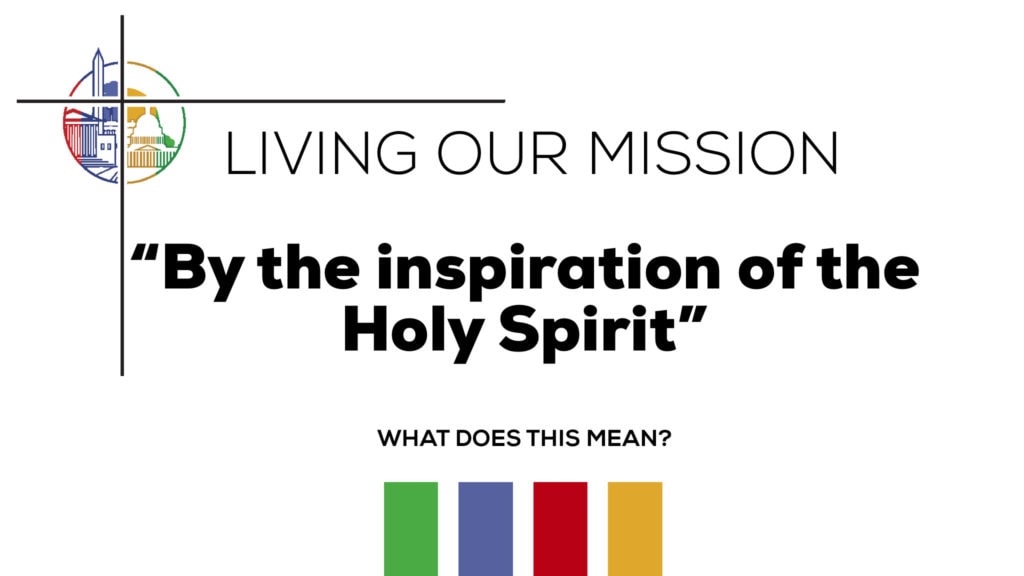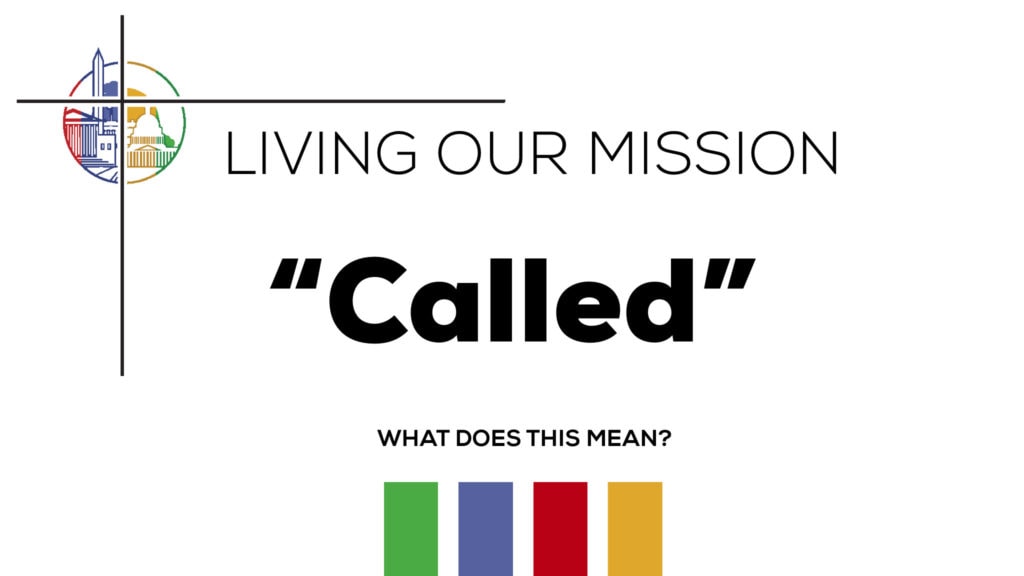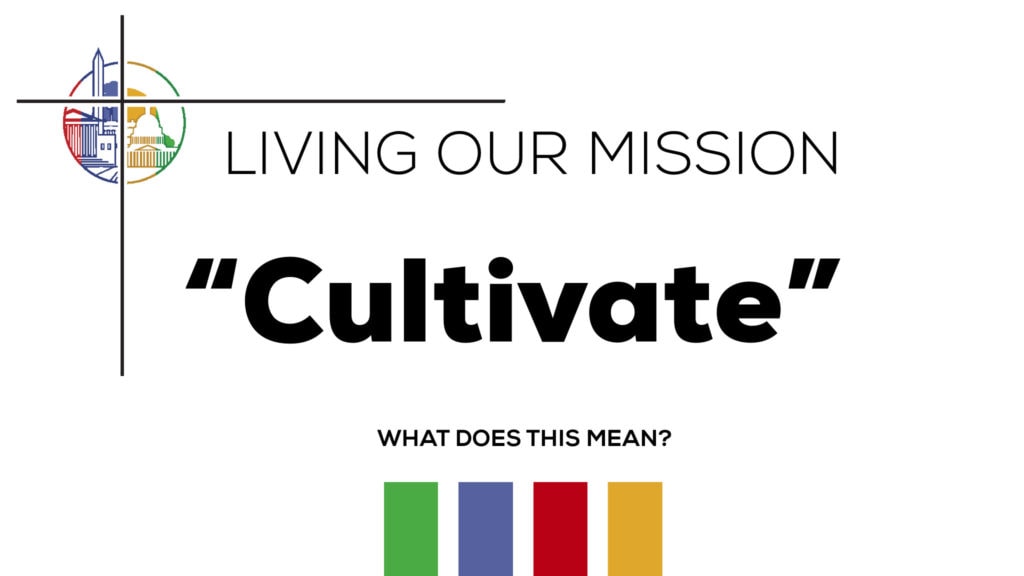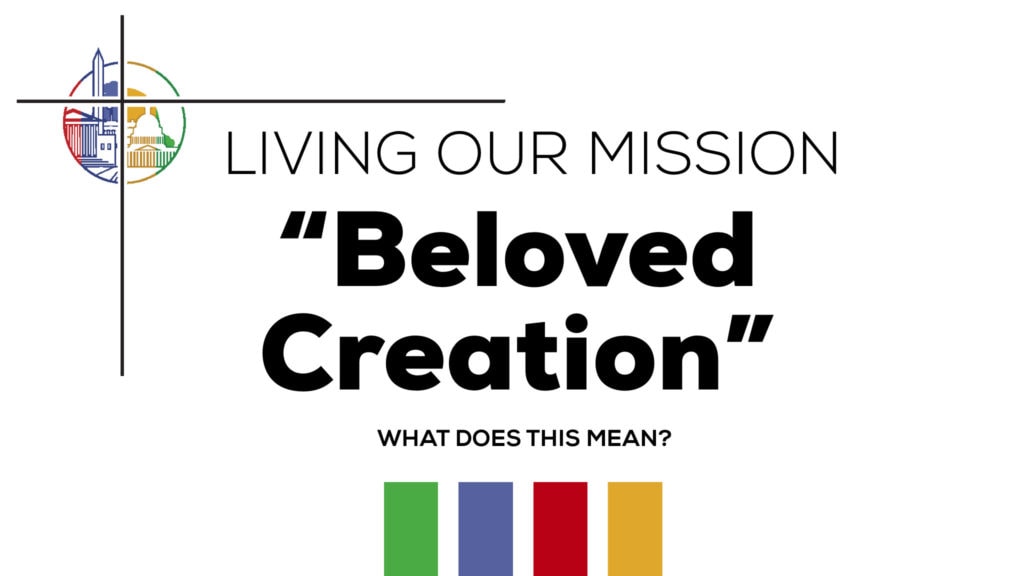Living Our Mission in Uncertain Times

In November of 2019, the Synod Council adopted a new mission statement for our synod,
“By the inspiration of the Holy Spirit, we are called to cultivate a bold and boundless love for Jesus and for God’s beloved creation.”
This mission was not adopted to stay in our minutes and posted on our website never to be looked at again. It is our mission to live into as synod together, even now, especially now.
Over the coming weeks we will engage the components of our mission and pray God fills us with continued courage and grace to lead during these uncertain times.

By the Inspiration of a Holy Spirit
As synod- church together- we have been called into mission. This mission begins, “By the inspiration of the Holy Spirit.” What does this mean?
In the Small Catechism, Luther explains that the Bible is the Word of God because it is written, “by inspiration of God.” He notes that this is so because, “the Holy Ghost moved the holy [people] to write, and put into their minds, the very thoughts which they expressed and the very words which they wrote.”
To be inspired by God, the Holy Spirit, is to be moved in our very being into holy, life-altering, and audacious action. It is to be moved, filled, and anointed with thoughts, words, and ideas that quite literally change lives, worldviews, and the world itself.
Even now, especially now, the Spirit cares to move our beings and stir in us words and holy action that make an impact in and beyond our faith communities. I pray we take time to listen to the words “put in our minds” and “the very thoughts” that come, even as, and especially when, we pray with sighs too deep for words.
Church, colleagues, friends, may we lead and live into our mission as synod together by the inspiration of the Holy Spirit today and always… with God’s help and in Jesus’ name. Amen.

To be Called
In Luther’s sermon on John 21:19-24 he says, “Notwithstanding the examples and lives of all the saints, every person should attend to the work entrusted to them and guard the honor of their calling. Oh, this is truly a needed and wholesome teaching.” He then imagines a response to this statement, “But how if I am not called, what shall I do then? Answer: How is it possible that you are not called? You have always been in some state or station; you have always been a husband or wife, or boy or girl, or servant.”
Every call that comes from God locates the called in relationships, situations, contexts, and involvements. This is why we understand daily living, the secular and the sacred, to be holy. All of our experiences, however messy and complicated, are interwoven into the fabric that is our life. And because of God’s wondrous ways, God uses our messy, complicated lives to restore and renew what is broken in life and in our world. Notice that God’s use for our lives is not to serve the self, but to serve outside oneself. To be clear, it is because of all that begs to be mended in life and in the world that the call from God consistently invites and moves the called from a posture that is curved in on itself to a posture that serves beyond the self.
God called Abraham to multiply, Ezequiel to prophesy, Moses to lead, Deborah to organize, and Esther to save her people. In every account, the calling is not for the benefit of the one called, but for the sake of something or someone outside of themselves: a people, the neighbor, a vision, a mission.
Our mission as synod reminds us that we are indeed called.
We are called by God to serve.
We are called by God to open our eyes and hearts beyond ourselves, our established norms and even our comfort.
We are called by God to dare follow Jesus and his voice wherever he may lead for the sake of all that is broken in life and in our world.
May we guard the honor of our calling as church together… with God’s help and in Jesus’ name. Amen.

To Cultivate
In Luther’s explanation of the first commandment, “You are to have no other gods,” he writes,
“Creatures are only the hands, channels, and means through which God bestows all blessings. For example, God gives to the mother breasts and milk for her infant or gives grain and all sorts of fruits from the earth for sustenance – things that no creature could produce by itself.”
As synod, we are called to cultivate the gifts that God has created within and among us: love, hope, and grace — gifts “that no creature can produce by itself;” gifts that are accessible to us because it pleases God that we should be entrusted with such favor. Therefore, we are called to be intentional in how we nurture our love for neighbor, promote our hope for justice, and encourage unconditional, disarming, and all-consuming grace for ourselves and for each other.
This call to cultivate love, hope, and grace is not easy; it’s faithful. It requires the acknowledgement that our world is divided by haves and have-nots, many of our communities are starved of care and compassion, and the most vulnerable are rendered irrelevant to those who have the luxury of looking the other way.
Our call to cultivate invites us to till the soil in which we live. It invites us to name and resist systemic evil and to organize, advocate, and accompany our neighbor. Much like the seed planted must die so that it may produce our sustenance, this call gives us the authority to tend the soil; to be neighbor until all that denies the liberating power of love, hope, and grace is no more; until new life, fruit, and possibility are what sustain us as the beloved and human family that we are.
What might responding to this call to cultivate look like for us in context… as disciples, families, church families, and neighbors? How is God inviting us to live into our mission and cultivate that which is powerful, life-altering, and already ours; already within and among us as God’s beloved church together?
My prayer is that we may recognize ourselves as the “hands, channels, and means through which God bestows all blessing” for all people; that we heed to the call with courage and gladness, and that we remain encouraged by the opportunity to glean from what God has already stirred in our spirits and placed on our hearts to share… with God’s help and in Jesus’ name. Amen.
To be Bold & Boundless
In the Small Catechism, Luther notes that the two great doctrines of the Bible are Law and Gospel, “The Law is that doctrine of the Bible in which God tells us how we are to be and what we are to do and not to do. The Gospel is the doctrine of the Bible in which God tells us the good news of our Salvation in Jesus Christ.” In the Apology, or defense, of the Augsburg confession, Philip Melanchthon adds, “For these are the two chief works of God in human beings, to terrify and to justify the terrified or make them alive. The entire Scripture is divided into these two works. One part is the law which reveals, denounces, and condemns sin. The second part is the gospel, that is, the promise of grace given in Christ.”
When we consider our call to be bold and boundless in ministry, we should note that each invitation carries its own weight. According to the dictionary, to be bold is to show one’s ability to take risks; to be confident and courageous. Much like the law, this call to be bold invites us to see and speak the truth of the trouble in our world and in ourselves.
It invites us to take risks and name that which impedes unconditional love, welcome, and belonging of self and neighbor; of all humanity.
It also invites us to name all the ways creation is abused and exploited rather than protected and cared for.
To be bold in ministry is to be confident in the One who calls and courageous in our calling.
It is to know that naming our complicity in systems that oppress is not shameful but liberating. It is to acknowledge that when we recognize color, context, and status it is not distasteful but honest.
It is to proclaim that when we care for the vulnerable, it’s not partisan but humane.
To be bold in ministry is to be guided by what is just and in keeping with the Kin-dom* of Heaven in the here and now.
To be boundless in ministry, much like the Gospel, is to be limitless and free.
It is to transcend our insecurities and fears.
It is to dream and envision life anew.
It is to hope recklessly and believe we have been created to alter broken, evil, and sinful realities.
It is to claim that we have been called for such a time as this, and for no other time than now.
To be boundless in ministry is to dare be open to newness, change, and discomfort along with innovation, transformation, and reformation.
It is to know that all things are possible through Christ who strengthens us and when all we do together, like the Gospel, is laced with grace.
May we dare be bold and boundless in ministry and as church together… with God’s help and in Jesus’ name. Amen
*A term introduced into public discourse by Christian Ethicist, Ada Maria Isasi-Diaz, in her book, Mujerista Theology, to describe the fullness of God’s intention for creation revealed in people’s relation to one another as “kin”; as kin who understand themselves as family in God.
To be Love
“Now I should like to know whether your soul, tired of its own righteousness, is learning to be revived by and to trust in the righteousness of Christ. . . . My dear brother, learn Christ and him crucified. Learn to pray to him and, despairing of yourself, say, ‘You, Lord Jesus, are my righteousness, but I am your sin. You have taken upon yourself what is mine and have given to me what is yours. You have taken upon yourself what you were not and have given to me what I was not.’ Beware of aspiring to such purity that you will not wish to be looked upon as a sinner, or to be one. For Christ dwells only in sinners. On this account he descended from heaven, where he dwelt among the righteous, to dwell among sinners. Meditate on this love of his and you will see his sweet consolation.” ~Martin Luther
By the inspiration of the Holy Spirit, we have been called to cultivate a bold and boundless love for Jesus. We have been invited to, “Meditate on this love of his and… see his sweet consolation;” to engage the One who took on flesh, walked this earth, endured death on a cross, and rose from the dead to remind us that, “the suffering of the present time are not worth comparing with the glory about to be revealed to us” Rom. 8:18.
This missional call is one that heartens us to boldly and boundlessly love Jesus as the one who took on our sin and gave us his righteousness; as the one who gives us reason to breathe and see ourselves and the world anew- as beloved; and the one who gives peace in the midst of our storms saying, “Peace I leave with you; my peace I give to you. I do not give to you as the world gives. Do not let your hearts be troubled, and do not let them be afraid.” John 14:27.
This is an invitation to love, engage, speak with, learn, and know the One that knows us by name and is eager to be in relationship with us.
In the May 2020 edition of Living Lutheran (pg. 42), I share a portion of my love story with Jesus. It’s a story about a journey that is always evolving and ever inspiring. My love story with Jesus, however, is my love story with him. It doesn’t have to be, and shouldn’t be, yours.
The gift we find in Jesus is that he is for everyone and wants to co-create a love story that is tailor made with each of us. And then, because the story is so good, he hopes we would share it with any and all who will listen.This is the invitation in our mission statement; that we may have a bold and boundless love for Jesus; so bold and boundless that we cannot but share it, and him, with others… with God’s help and in Jesus’ name. Amen.
Beloved Creation
In the Large Catechism, Luther reminds us that the fifth commandment, “You are not to kill,” is not limited to the murder of the body, but as Jesus taught us in Matthew 5, “We must not kill, either by hand, heart, or word, by signs or gestures, or by aiding and abetting.”
This was made clearest to me through the writings of Jewish philosopher, Emmanuel Levinas. In his essay, “Is Ontology Fundamental,” he explains that when we conceptualize and treat a human being according to a construct, we engage in “ontological[1] murder.” Meaning that when we look at someone and immediately perceive and treat them according to a concept that has been politically and socially determined, i.e., “black,” “brown,” “poor,” “gay,” “immigrant,” “dangerous,” “criminal,” etc., we neglect to acknowledge the “being” of that person, therefore denying and killing that person through ontological murder. The same can be said for when we treat the Earth and the created there in as an object to abuse and exploit rather than as gift and creation of God to be respected and honored.
In her book, “Out of the Depths: Women’s Experience of Evil and Salvation,” Ivone Gebara, Roman Catholic nun, theologian and ecofeminist, preaches an ethic of mutual and ecological respect and responsibility. This respect is not one that humbly accepts all that is, but instead is held accountable and is willing to be confrontational and demanding of justice in every aspect of human and ecological life. She also highlights that our interrelatedness with the Earth might help us unlearn and reconstruct our ways of being in the world in relation to all God’s beloved creation.
By the inspiration of the Holy Spirit we have been called to cultivate a bold and boundless love for Jesus and for all God’s beloved creation. During this season of Pentecost and time of social unrest, we are pressed to respond to the urgency of the moment with love; love that extends beyond our previously known capacity and transcends what has been historically determined for us as society. Mindful that God is Love and God is with us, we know we are not forsaken or abandoned in the faithful work of dismantling that which has perpetuated systemic evil, ontological murder, and desensitization to the earth’s cry.
As Church, the body of Christ, God’s beloved, called for such a time as this – we will, as taught to us by Dr. King in his sermon, “Transformed Nonconformist,” no longer be made by history, but instead make history. We will no longer be “thermometers that record or register the temperature of majority opinion.” We will, instead, be “thermostats that transform and regulate the temperature of society.” We will boldly and boundlessly love all God’s beloved creation in word and deed with God’s help and in Jesus’ name. Amen.
[1] Ontology is the branch of metaphysics dealing with the nature of being.




